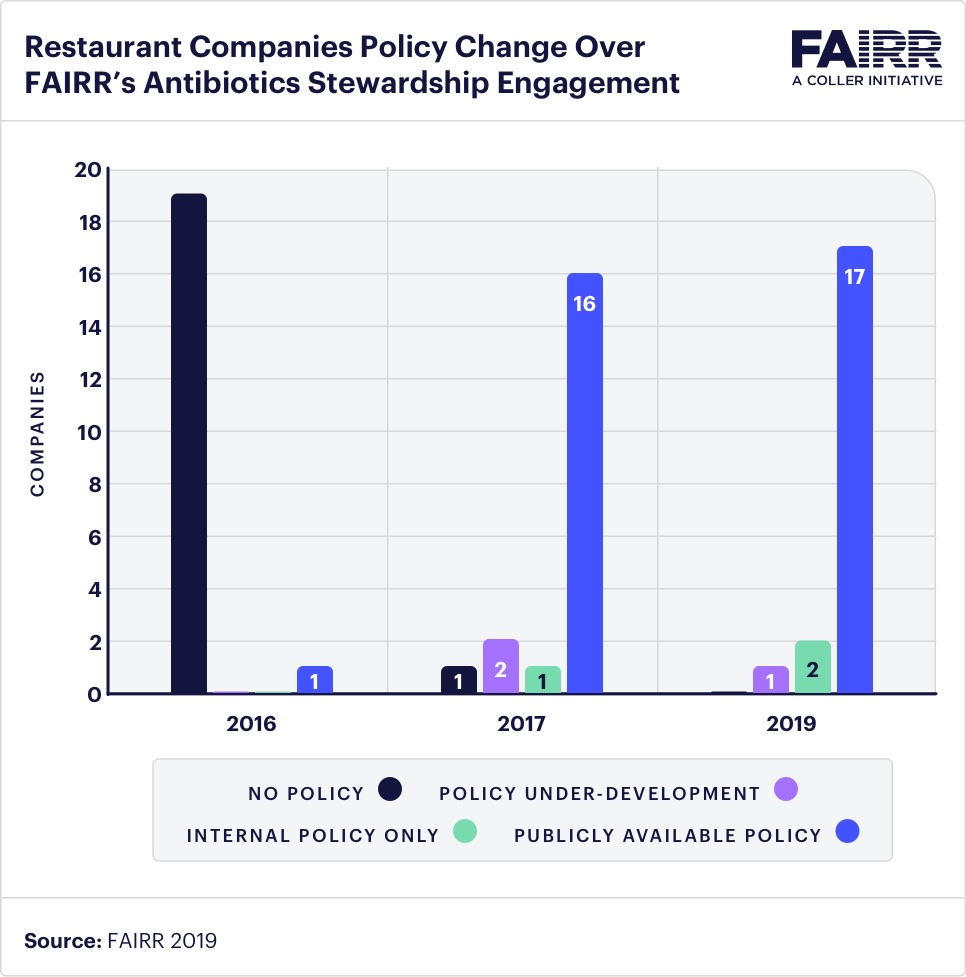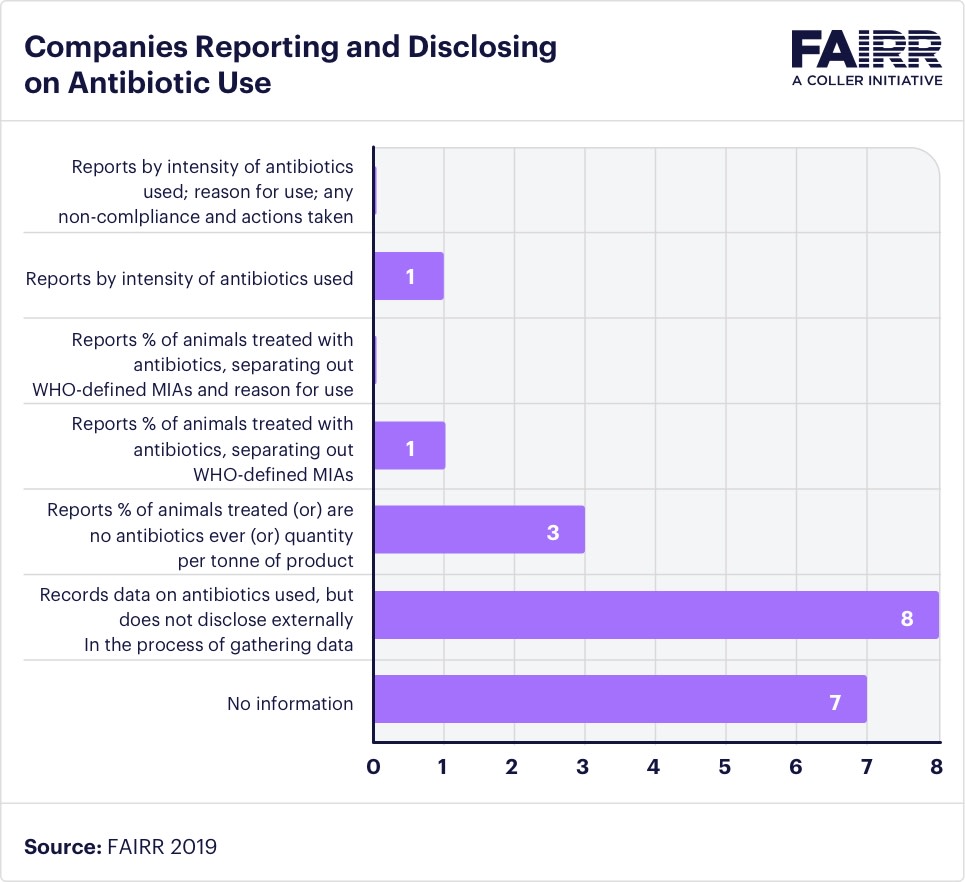Final Outcomes
Policy Development
Company awareness and recognition of the impacts associated with the overuse of antibiotics in farmed animals has increased significantly compared to the start of the engagement. Back in 2016, only one company had a regional policy on antibiotic use and it was limited in scope. By the end of the engagement, all companies recognised the need to address antibiotics resistance and 19 either had a public or private policy in place.
The majority of UK-based companies had either established global policies addressing all relevant species sourced or were revising their policies to expand the scope.

Policy Implementation
Despite the progress made in developing a policy, there was little transparency on implementation, including poor disclosure around antibiotic use and auditing practices. 13 companies in the engagement had either yet to establish relevant time-bound commitments for phasing out antibiotics use in their supply chains or simply state that they were complying with basic regulatory guidance such as FDA 213.
It is crucial for companies to monitor supplier compliance against their policies. However, 30% provided no information on their approach to engaging and monitoring suppliers. Furthermore, there was very limited disclosure on levels of antibiotic use, with 7 companies providing no information. Without access to this data, it is challenging to ascertain whether reductions were being achieved.
